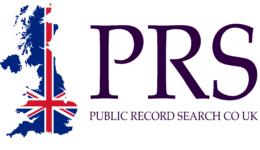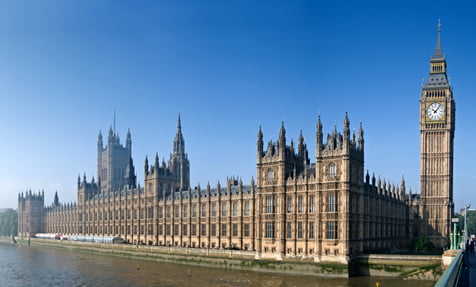What Information Can Be Obtained from a New South Wales Australia People Search?
A real people search is a public records search during which you input a person’s name and receive a list of matching results. It is preferred and more successful to enter a first and last name, or perhaps a middle initial, to help you discover people fast. You may filter up the search results and obtain the highest potential matches by selecting a city, zip code, or state. It may take a few tries to discover the exact person you’re searching for.

Where to start a New South Wales People Search?
To start your people searching quest in NSW Australia, you need to visit the official webpage of state archives and records NSW State Archives or through the National Library of Australia
What Information Can Be Obtained from a New South Wales Australia Criminal Records Search?
Criminal records internet-based research may reveal a great deal about an individual. By doing an internet criminal records search, you may learn the truth about almost anyone’s past. A criminal background check gathers information from court documents, arrest records, police archives, civil files, and other criminal registration authorities. In principle, you may find information regarding the accusations and when they were filed, and sentence records, jail or prison records, and court documents.
Where to Begin Your New South Wales Criminal Records Search
You can begin your search for New South Wales (NSW) criminal records first by visiting the official website of the NSW police force community portal Police Check where you can learn more about the different types of criminal records and where each can be obtained from or found.
What Information Can Be Obtained from a New South Wales Australia Court Records Search?
Court Records are comprehensive records that are kept by courts for judicial purposes. They are kept in judiciary or municipality archives and hold details including the accused and victims’ identification, judicial processes, different sorts of allegations, verdicts, and detailed sentencing information. Even though each court record is distinct, depending on the varied administrative or jurisdictional requirements, it generally includes the following items: essential files and papers relevant to the legal case, case appointment sheet, evidence of a crime, recordings, and testimonials.
Where to Begin Your New South Wales Court Records Search
If you surf the internet, you will see that there are different types of court records that you can obtain. You may commence your court records search by visiting the NSW Official Governmental website, where you will find a wealth of information about court records in New South Wales and possible ways to acquire or request them. Another way to start your search would be through visiting the website of the State Archives and Records of NSW.
What Information Can Be Obtained from a New South Wales Australia Marriage Records Search?
Marriage records could incorporate data about the wedding ceremony and the couple’s identities; however, the marital license and certification are the two legally essential marriage documents. Most marriage record inquiries are done with the goal of acquiring these two documents, particularly the marriage certificate.
Where to Begin Your Marriage Records Search
Information pertaining to marriage records in New South Wales is available on multiple websites that are easily accessible for everyone. For example, you can begin your marriage records search either by visiting the National Library of Australia Australian Birth, Death and Marriage Records and submit a request. Another way would be through visiting the official webpage of the NSW government NSW Registry of Births Deaths & Marriages and apply for a certificate online.
What Information Can Be Obtained from a New South Wales Australia Divorce Records Search?
Personal information about children, financial documents, and confidential criminal material, like domestic violence, may be included in divorce documents. Because of the personal nature of divorces, divorce documents, certificates, and rulings are typically much less available than other forms of public documentation.
Where to Begin Your New South Wales Divorce Records Search
There are also a variety of online-accessible sources to request divorce records in New South Wales Australia. You can request a divorce record by going to the Federal Circuit and Family Court Of Australia webpage Request Proof of Divorce , filling in the necessary information, and obtain your requested record for a $30 AUD fee. Another approach can be done through visiting NSW state archives and records Divorce Records Index.
What Information Can Be Obtained from New South Wales Australia Birth Records Search?
Birth certificates are a frequent type of public record. It contains information namely the ages of the spouses, the child’s birth order, the child’s gender, and church documentation for the birth. It’s a great place to start if you’re looking at adoption, and it’s also a great resource for genealogy and family history research. The advancement of computer technology in recent years has tremendously aided birth records and archives. All state government offices keep birth records fully updated.
Where to Begin Your New South Wales Birth Records Search
You can begin your search for birth records in NSW Australia by visiting the governmental websites that contain different information and sources that you find helpful. For instance, you can start by visiting the National Library of Australia New South Wales or the state library of NSW Marriages and Divorce – Births, Deaths, and Marriages.
What Information Can Be Obtained from a New South Wales Australia Death Records Search?
A death record is a document that records the time and place of an individual’s death. A true death record will give you more details about the household, like the departed time and birthplace or age, enabling you to track your ancestors back a further generation and discover a birth record for the departed. A full death document will contain the additional data: name, date, and place of death, date, and place of birth (optional), occupation, address, reason of dying, and the individual who submitted the data for the mortality data.
Where to Begin Your Death Records Search
Similar to birth records, death records can be found on the same governmental webpages mentioned previously
What Information Can Be Obtained from a New South Wales Australia Genealogy Records Search?
A “genealogy,” “family history,” or “family tree” is a record of genealogical research. A “family tree” or “genealogy” tracks an individual’s ancestors, although a “family history” follows one person’s forebears; however, the words are commonly used similarly. Genealogical records may require comprehensive biographical data, family traditions, adoption records, and other data, among many other things.
Where to Begin Your Genealogy Records Search
Since genealogy records mainly cover the history of the family for the purpose of tracing your ancestors and building your family tree, a good way to start your search is by checking your family history! This can be done through examining and analyzing vital records of your family, which can be accessed through the official governmental webpage of NSW state archives and records Family History Guide | NSW State Archives or National Library of Australia NSW.
Be sure to visit Public Record Search UK for additional record searches and informative articles of interest.
Advertising Disclosure: This post may contain promotional links. publicrecordsearch.co.uk may be compensated if you use these links.

